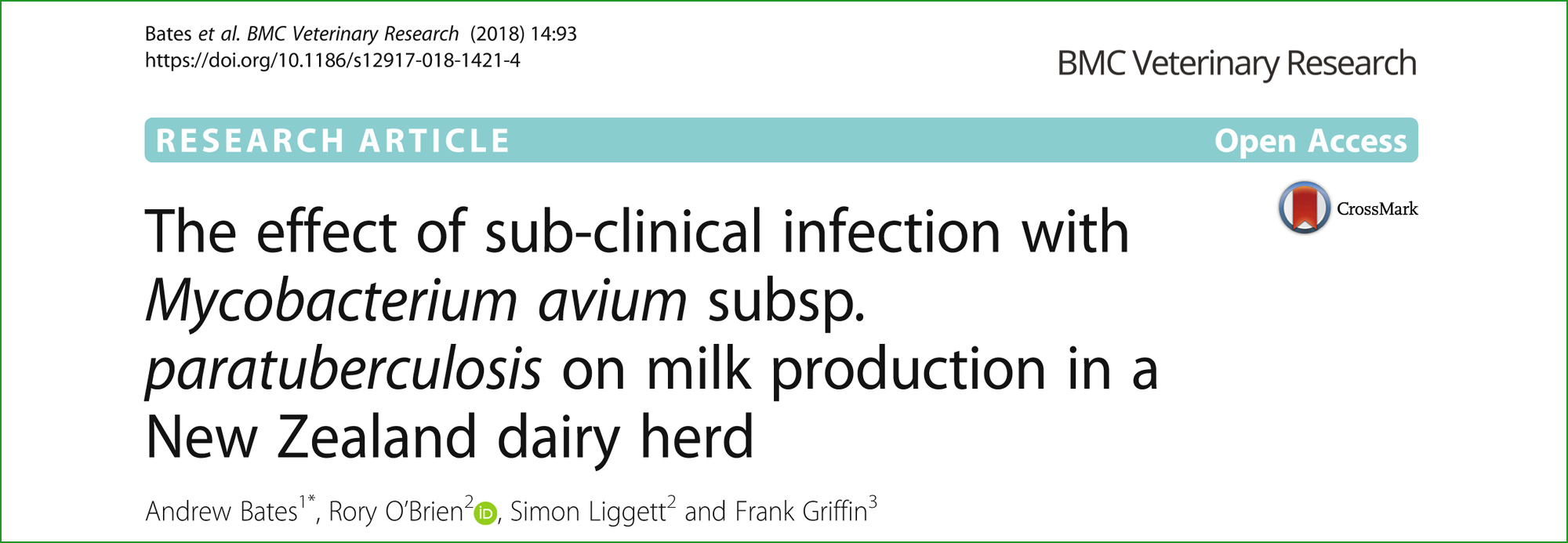
Keeping the ‘R’ in DRL – DRL’s latest published study confirms that subclinical Johne’s disease in the herd is costing farmers money. Conducted in collaboration with Dr Andrew Bates at the Vetlife New Zealand Centre for Dairy Excellence our latest study charts the economic impact of sub-clinical infection with Mycobacterium paratuberculosis (MAP) on milk production in a New Zealand dairy herd. Using DRL’s testing methods to confirm the fecal shedding characteristics of ELISA positive cows, this study confirms that even sub-clinical Johne’s disease has a significant impact on milk production. Compared to cows where MAP was not detected, daily milk solids production was 4% less for high ELISA positive cows, 6% less for moderate shedders and 12% less for high shedders. DRL’s testing strategy was able to stratify the animals in this herd based on their likely impact on production and disease spread; this allows farmers to prioritise removal of heavily shedding, less-productive animals and so reduce the risk of further infection of young stock. Read the full article here.
MAY 2023 HEIFER TESTING PROMOTION! Use Paralisa™ testing to detect subclinical Johne’s infections earlier*. After 3 years of research, including over 8,000 animals, we are now offering our combined Paralisa™ + absorbed ELISA testing for heifers 18 months and older. Ask your animal health provider about incorporating DRL’s Paralisa™ …[Read more]
DRL is an industry leader in diagnostic services for Johne’s disease in New Zealand, and the inhouse Johne’s diagnostic tool, the Paralisa™ test, has proven its strength in combination with commercially available ELISA tests. Increasing test sensitivity allows farmers to identify animals in the earlier states of disesase (subclinical), and …[Read more]
Our faecal PCR test hallmark of quality. Every year, the DRL laboratory participates in blinded proficiency panel testing for Johne’s disease, administered through the US National Veterinary Services Laboratory, Ames, Iowa as part of an ongoing international accreditation programme for diagnostic laboratories. These proficiency panels include serum, milk and faecal …[Read more]